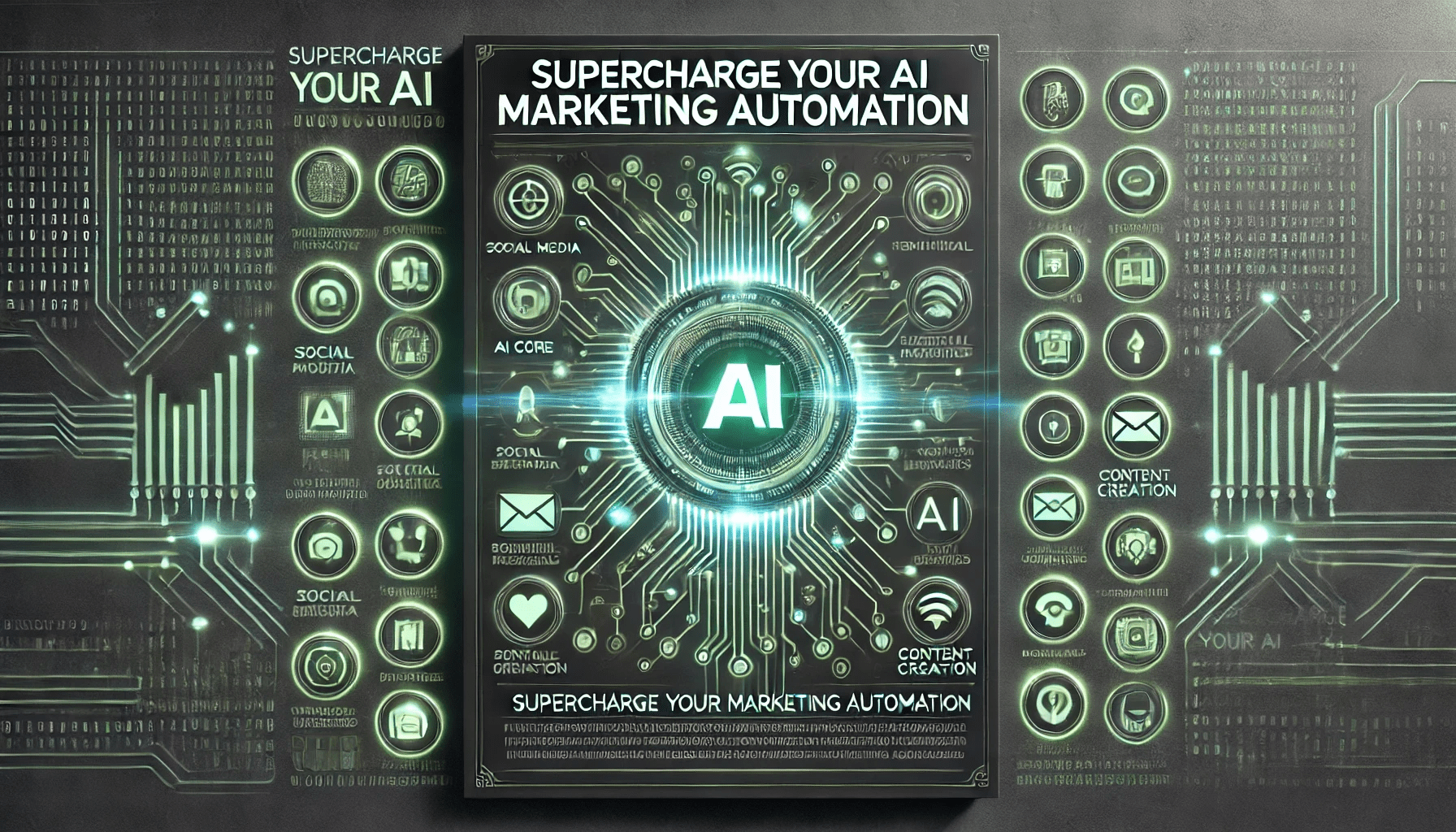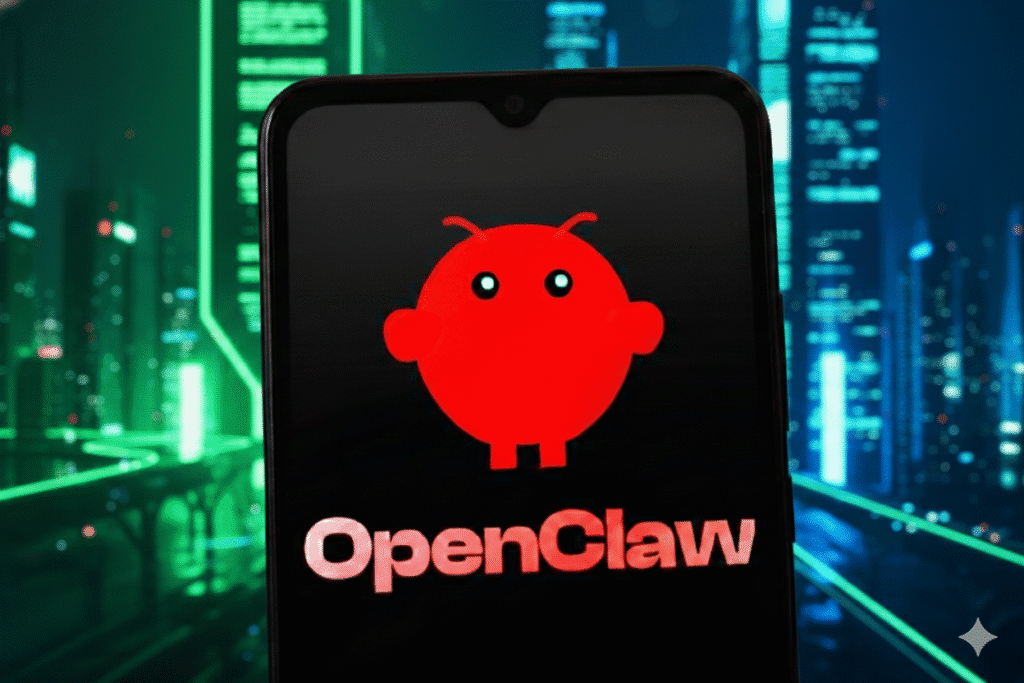In the ever-evolving landscape of digital marketing, leveraging AI marketing automation has become a game-changer for agencies and e-commerce businesses aiming to stay ahead. By harnessing the power of Large Language Models (LLMs), companies can optimize their marketing strategies, creating high-quality content quickly and efficiently while maintaining a creative edge. This document will delve into five essential prompts designed to supercharge your AI marketing automation strategies, providing clear, actionable insights tailored to meet the specific needs of advertising and digital marketing professionals. Get ready to transform your content creation process and drive meaningful results with cutting-edge AI solutions.
The Rise of AI in Marketing
AI’s impact on marketing has grown rapidly, transforming how businesses engage with customers and optimize campaigns. The rise of AI in marketing can be attributed to its ability to analyze vast amounts of data and generate insights that would take humans significantly longer to uncover. By automating routine tasks, AI frees up marketers to focus on creative strategy and decision-making. Additionally, AI-driven tools can personalize customer experiences, predict future trends, and enhance overall marketing efficiency. Large Language Models (LLMs) like GPT-3 have revolutionized content creation, enabling marketers to produce high-quality, relevant content swiftly. As AI continues to evolve, it is expected to play an even more integral role in marketing automation, making it indispensable for modern marketing strategies. This trend highlights the importance of staying updated with AI advancements to maintain a competitive edge.

Benefits of Marketing Automation
Marketing automation offers numerous benefits that can dramatically improve the efficiency and effectiveness of your campaigns. Firstly, it saves time by automating repetitive tasks such as email marketing, social media posting, and ad management. This allows marketing teams to focus on more strategic activities like content creation and campaign planning. Secondly, marketing automation enhances personalization, enabling tailored communications that resonate more deeply with individual customers. Additionally, automation tools provide valuable analytics and insights, helping marketers understand customer behavior and optimize future campaigns. By streamlining processes, marketing automation also reduces the risk of human error and ensures consistency in customer interactions. Overall, these benefits collectively lead to improved customer engagement, higher conversion rates, and a better return on investment (ROI) for marketing efforts. As AI technology continues to advance, the advantages of marketing automation are only set to increase, making it a crucial component of modern marketing strategies.
Why Prompts Matter
Prompts play a crucial role in harnessing the full potential of AI-powered marketing automation. A well-crafted prompt can guide AI models like Large Language Models (LLMs) to generate precise, relevant, and high-quality content. Effective prompts help ensure that the AI understands the context and the specific needs of the task at hand, leading to more accurate and useful outputs. In essence, the quality of the prompt directly impacts the quality of the AI’s response. By carefully designing prompts, marketers can obtain outputs that align with their strategic objectives, whether it’s crafting engaging social media posts, generating compelling ad copy, or creating insightful blog articles. Additionally, good prompts can streamline the content creation process, reducing the time and effort required to produce marketing materials. As AI continues to evolve, mastering the art of prompt engineering will become increasingly important for maximizing the benefits of AI marketing automation.
Content Generation
Crafting Engaging Headlines
Crafting engaging headlines is critical for capturing your audience’s attention and driving clicks. With AI marketing automation, you can generate compelling headlines quickly and efficiently. By using clear and specific prompts, you can guide the AI to create headlines that are not only attention-grabbing but also aligned with your brand voice and target audience. For instance, a prompt like “Generate a catchy headline for an article about the benefits of AI in e-commerce” can yield relevant results that resonate with your readers. Additionally, you can instruct the AI to incorporate power words, emotional triggers, or specific keywords to enhance the headline’s impact. Experimenting with different prompts and variations can help you identify what works best for your audience. Ultimately, leveraging AI for headline generation can save time and ensure your content stands out in a crowded digital landscape.
Writing Persuasive Copy
Writing persuasive copy is essential for driving conversions and engaging your audience effectively. With AI marketing automation, creating compelling copy becomes more streamlined and efficient. By providing the AI with detailed prompts, you can ensure the generated content aligns with your marketing objectives and resonates with your target audience. For example, a prompt like “Write a persuasive product description for a new eco-friendly water bottle, highlighting its benefits and unique features” can help the AI produce relevant and impactful copy. Specific prompts can guide the AI to focus on emotional triggers, customer pain points, and value propositions that drive action. Additionally, you can request variations of the copy to A/B test and identify the most effective messaging. Utilizing AI for persuasive copywriting not only saves time but also enhances the consistency and quality of your marketing materials, ultimately leading to better engagement and higher conversion rates
Optimizing for SEO
Optimizing content for SEO is vital for increasing your online visibility and driving organic traffic. AI marketing automation can significantly enhance your SEO efforts by generating content that adheres to best practices and incorporates essential keywords. By crafting precise prompts, you can instruct the AI to focus on specific SEO elements. For example, a prompt like “Write an SEO-optimized blog post about the latest trends in digital marketing, including keywords such as ‘digital marketing trends 2023’, ‘SEO strategies’, and ‘content marketing'” can help produce content tailored for search engines. The AI can also assist in generating meta descriptions, alt text for images, and keyword-rich headings, further boosting your SEO performance. Additionally, using AI to analyze competitors’ content and identify keyword opportunities can help you stay ahead in search rankings. Integrating AI into your SEO strategy ensures your content not only meets quality standards but also achieves better visibility and engagemen
Customer Segmentation
Personalized Campaign Messages
Creating personalized campaign messages is crucial for engaging different customer segments effectively. AI marketing automation can help tailor messages to specific audiences, enhancing relevance and resonance. By using detailed prompts, you can guide the AI to generate personalized content that addresses the unique needs and preferences of each segment. For example, a prompt like “Generate a personalized email message for young professionals promoting our new productivity app, highlighting time-saving features and ease of use” can yield targeted content. Personalized messages can include elements such as the recipient’s name, past purchase behavior, and preferences, making the communication more impactful. Furthermore, AI can analyze customer data to identify segments and suggest personalized messaging strategies. This approach not only improves engagement rates but also fosters stronger customer relationships. Leveraging AI to create personalized campaign messages ensures your marketing efforts are more effective and your audience feels valued and understood
Identifying Target Audiences
Identifying target audiences is a fundamental step in any successful marketing strategy. AI marketing automation can significantly streamline this process by analyzing vast amounts of customer data to uncover patterns and insights. By leveraging detailed prompts, you can instruct AI to segment audiences based on various criteria, such as demographics, behavior, and purchasing history. For instance, a prompt like “Identify key customer segments for our new fitness apparel line based on age, gender, and purchase frequency” can help the AI generate precise audience segments. This targeted approach allows you to tailor your marketing messages and offers to meet the specific needs and preferences of each group. AI can also help in identifying emerging trends and shifts in customer behavior, enabling you to adjust your strategies proactively. Utilizing AI for audience identification ensures that your marketing efforts are more focused, efficient, and effective, ultimately leading to better engagement and higher conversion rates.
Enhancing CRM Data
Enhancing CRM data is crucial for maintaining accurate and actionable customer insights. AI marketing automation can enrich your CRM by analyzing and updating customer information in real-time. By using specific prompts, you can direct the AI to focus on areas that need improvement, such as data accuracy, completeness, and relevance. For example, a prompt like “Analyze our CRM data to identify and fill in missing customer details such as job titles and contact information” can help the AI refine your database. AI can also detect patterns and trends within your CRM data, providing deeper insights into customer behavior and preferences. This enhanced data can then be used to create more targeted and personalized marketing campaigns. Furthermore, AI can automate the process of data cleansing, ensuring that outdated or incorrect information is regularly updated. Leveraging AI to enhance your CRM data ensures that your marketing strategies are based on accurate and comprehensive customer insights, leading to more effective and personalized communications.
Trend Analysis
Monitoring Market Trends
Monitoring market trends is essential for staying competitive and making informed strategic decisions. AI marketing automation can significantly enhance your ability to track and analyze trends by processing vast amounts of data quickly and accurately. By providing specific prompts, you can direct the AI to monitor relevant market activities and consumer behaviors. For example, a prompt like “Analyze social media conversations and online articles to identify emerging trends in digital marketing for 2023” can help the AI generate insightful reports. AI can also identify shifts in customer sentiment, new industry developments, and competitor activities, allowing you to adapt your strategies accordingly. This proactive approach ensures that you can capitalize on new opportunities and mitigate potential risks. Utilizing AI for trend monitoring not only saves time but also provides a more comprehensive view of the market landscape. This enables you to make data-driven decisions that keep your business ahead of the curve.
Adapting to Consumer Behavior
Adapting to consumer behavior is essential for maintaining relevance and driving engagement in a dynamic market. AI marketing automation can help you analyze and respond to changes in consumer preferences and behaviors in real-time. By using precise prompts, you can instruct the AI to focus on key behavioral indicators and trends. For instance, a prompt like “Analyze recent purchase patterns and social media interactions to identify shifts in consumer preferences for home fitness products” can provide valuable insights. AI can detect subtle changes in buying habits, preferences, and sentiment, enabling you to adjust your marketing strategies proactively. This might involve tweaking product offerings, modifying messaging, or launching targeted campaigns to align with current consumer interests. By leveraging AI to monitor and adapt to consumer behavior, you can ensure that your marketing efforts remain relevant, personalized, and effective. This approach not only enhances customer satisfaction but also drives higher conversion rates and loyalty.
Predictive Analytics
Predictive analytics is a powerful tool for anticipating future trends and making data-driven decisions. AI marketing automation can enhance your predictive capabilities by analyzing historical data and identifying patterns that forecast future behaviors and market developments. With well-crafted prompts, you can instruct the AI to generate predictive insights tailored to your strategic needs. For example, a prompt like “Analyze past sales data and market trends to predict the demand for our new product line in the next quarter” can yield valuable forecasts. AI can also identify potential opportunities and risks, allowing you to adjust your strategies proactively. By leveraging predictive analytics, you can optimize inventory management, tailor marketing campaigns, and improve customer targeting. This forward-looking approach ensures that you stay ahead of the competition and can respond swiftly to emerging trends. Utilizing AI for predictive analytics provides a strategic advantage, enabling more informed decision-making and better resource allocation.
Workflow Optimization
Streamlining Marketing Processes
Streamlining marketing processes is essential for maximizing efficiency and reducing operational costs. AI marketing automation can significantly enhance your workflow by automating routine tasks and optimizing resource allocation. By providing clear and specific prompts, you can direct the AI to identify bottlenecks and suggest improvements. For instance, a prompt like “Analyze our current email marketing workflow and recommend steps to reduce time spent on campaign management and reporting” can yield actionable insights. AI can also automate repetitive tasks such as data entry, scheduling, and performance tracking, freeing up your team to focus on strategic initiatives. Additionally, AI can integrate with other marketing tools and platforms, ensuring seamless data flow and coordination across different activities. By leveraging AI to streamline your marketing processes, you can achieve higher productivity, faster turnaround times, and improved campaign performance. This approach not only enhances operational efficiency but also leads to more effective and impactful marketing efforts.
Automating Routine Tasks
Automating routine tasks is a key benefit of AI marketing automation, allowing your team to focus on high-value activities. AI can handle repetitive tasks such as data entry, email scheduling, social media posting, and performance tracking with speed and accuracy. By using specific prompts, you can direct the AI to execute these tasks efficiently. For example, a prompt like “Automate the scheduling of weekly social media posts based on our content calendar” can save valuable time and ensure consistency. AI can also manage customer interactions through chatbots, handle lead scoring, and generate performance reports, reducing the manual effort required. This automation not only increases productivity but also minimizes the risk of human error. By leveraging AI to automate routine tasks, you can ensure that your marketing operations run smoothly and your team can dedicate more time to strategic planning and creative endeavors. This approach enhances overall efficiency and effectiveness in your marketing efforts.
Enhancing Team Collaboration
Enhancing team collaboration is vital for the success of any marketing campaign. AI marketing automation can facilitate better communication and coordination among team members by integrating various tools and platforms. By using detailed prompts, you can guide the AI to streamline collaborative processes. For example, a prompt like “Analyze our project management tool and recommend ways to improve task assignment and progress tracking” can help the AI identify areas for improvement. AI can also automate the sharing of updates, generate real-time reports, and ensure that all team members have access to the latest information. This reduces the likelihood of miscommunication and ensures that everyone is on the same page. Additionally, AI can assist in scheduling meetings, setting reminders, and managing deadlines, further enhancing productivity. Leveraging AI to enhance team collaboration ensures that your marketing projects are executed more efficiently, with fewer bottlenecks and better alignment among team members
Performance Metrics
Tracking Campaign Success
Tracking campaign success is crucial for understanding the effectiveness of your marketing efforts and making informed decisions. AI marketing automation can enhance your ability to monitor and analyze performance metrics in real-time. By using specific prompts, you can instruct the AI to focus on key performance indicators (KPIs) relevant to your goals. For example, a prompt like “Generate a weekly report on the performance of our email marketing campaigns, including open rates, click-through rates, and conversion rates” can provide valuable insights. AI can also identify trends, highlight areas for improvement, and suggest actionable recommendations based on the data. This real-time tracking allows you to make swift adjustments to optimize campaign performance. Additionally, AI can integrate data from various sources, providing a comprehensive view of your marketing activities. Leveraging AI to track campaign success ensures you have accurate, timely insights to drive continuous improvement and achieve better outcomes.
Real-Time Data Analysis
Real-time data analysis is essential for making swift, informed decisions and optimizing marketing performance. AI marketing automation excels at processing and analyzing data as it flows in, providing immediate insights that can drive strategic actions. By crafting detailed prompts, you can instruct the AI to focus on specific metrics and data points in real-time. For example, a prompt like “Analyze real-time website traffic data to identify spikes in user activity and their sources” can help you quickly understand user behavior and respond accordingly. AI can also monitor social media sentiment, track ad performance, and observe customer interactions, offering a comprehensive view of your marketing landscape. This immediate analysis allows you to spot trends, detect issues, and capitalize on opportunities without delay. Leveraging AI for real-time data analysis ensures that your marketing strategies are agile, data-driven, and capable of delivering optimal results in a dynamic environment.
Improving ROI
Improving return on investment (ROI) is a primary objective for any marketing campaign. AI marketing automation can significantly enhance your ability to optimize ROI by providing detailed insights and actionable recommendations. By using precise prompts, you can guide the AI to analyze various factors that impact ROI. For instance, a prompt like “Evaluate the cost-effectiveness of our recent ad campaigns and suggest ways to improve ROI” can help identify areas for optimization. AI can assess ad performance, audience engagement, and conversion rates, offering suggestions for budget reallocation, targeting adjustments, and content enhancements. Additionally, AI can predict which strategies are likely to yield the highest returns based on historical data and current trends. This data-driven approach ensures that your marketing investments are focused on the most effective tactics, maximizing profitability. Leveraging AI to improve ROI not only increases the efficiency of your marketing spend but also drives better overall business performance.
Ready to revolutionize your marketing efforts with AI? Explore more about how AI can transform your agency on Dapta and start your journey toward unparalleled efficiency and success.





